
Data from the phase 1b MonumenTAL-2 trial support pomalidomide plus talquetamab as a promising treatment option in relapsed/refractory multiple myeloma, says Jeffrey Matous, MD.

Your AI-Trained Oncology Knowledge Connection!


Data from the phase 1b MonumenTAL-2 trial support pomalidomide plus talquetamab as a promising treatment option in relapsed/refractory multiple myeloma, says Jeffrey Matous, MD.
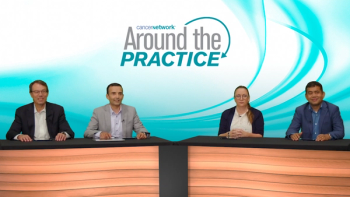
The expert panel closes the discussion with key takeaways on the relapsed/refractory multiple myeloma treatment landscape.

Multiple myeloma–treating oncologists provide comprehensive insights on deciding between bispecific antibody monotherapy, combination therapy, and CAR T-cell therapy.

The panel continues their discussion on adverse effect management with a focus on GPRC5D-targeting bispecific antibodies in multiple myeloma.

Multiple myeloma specialists discuss the management of toxicities from BCMA-targeting bispecific antibodies.

Comprehensive insights on the management of adverse effects from bispecific antibodies in the treatment of multiple myeloma.

Expert oncologists discuss dosing considerations for bispecific antibodies in the treatment of patients with multiple myeloma.

A review of clinical trial data on bispecific antibodies in multiple myeloma and clinical insights on how these medications have changed clinical practice.

The panel reviews the profiles of 2 patients with multiple myeloma and provides their initial thoughts regarding treatment approaches.

Expert perspectives on treatment decision-making in early-relapse multiple myeloma and the efficacy of CAR T-cell therapy.

A panel of oncologists give an overview of clinical trial data surrounding the management of early-relapse multiple myeloma.

A look at the unmet needs and future directions of multiple myeloma treatment.
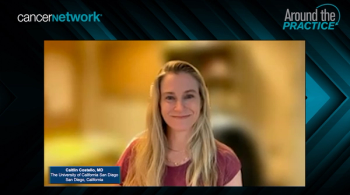
Oncologists highlight novel agents currently being investigated for the treatment of relapsed/refractory multiple myeloma.
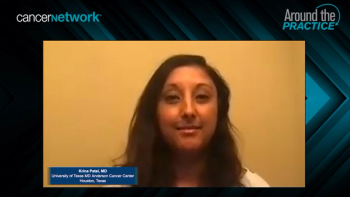
Key takeaways from the CARTITUDE-1 study and the KarMMA study evaluating CAR T-cell therapies for relapsed/refractory multiple myeloma.
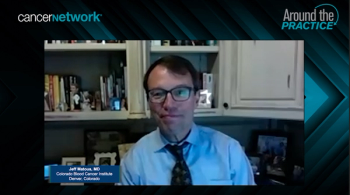
An overview of BCMA-targeting bispecific agents in development for multiple myeloma, including talquetamab and teclistamab.
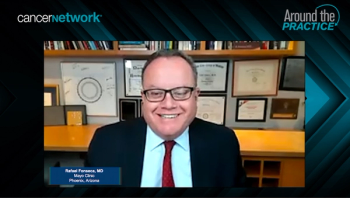
A panel of doctors discuss the available treatment options for early and late relapsed multiple myeloma, including approved novel BCMA-targeting agents.

A look at the patient outcomes with daratumumab use in the frontline vs second-line setting in patients with transplant-ineligible multiple myeloma, and the pros and cons of subcutaneous vs intravenous daratumumab.

A review of the available first-line treatment options for transplant-ineligible multiple myeloma, as well as the design and findings of the MAIA study.

Experts explain how to determine treatment duration and a successful response to induction therapy for transplant-eligible multiple myeloma.

A discussion on choosing between triplet or quadruplet induction therapy for transplant-eligible newly diagnosed multiple myeloma.

An overview of the triplet and quadruplet induction treatment regimens available for patients with transplant-eligible multiple myeloma and key clinical trials studying daratumumab and isatuximab presented at ASH 2021, with emphasis on the GRIFFIN, MASTER and GMMG-HD7 studies.
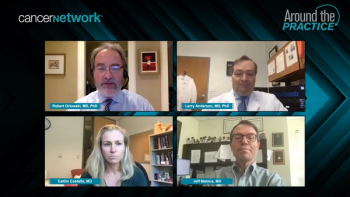
A panel of hematologists/oncologists conclude a discussion about transplant-ineligible multiple myeloma (MM) by reacting to current treatment gaps that need to be addressed.
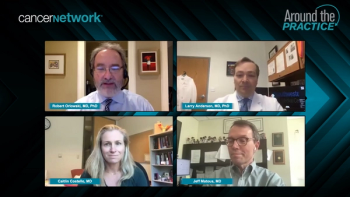
Recommendations when talking with patients with transplant-ineligible multiple myeloma (MM) who request to stop receiving treatment.

Triggers that may lead a hematologist/oncologist to consider reinstituting therapy for a patient with transplant-ineligible multiple myeloma (MM) who received prior therapy but was not treated to progression.
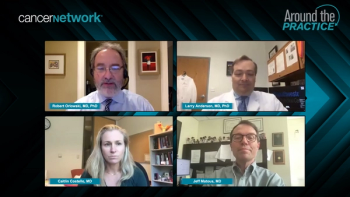
The rationale behind treating patients with newly diagnosed transplant-ineligible multiple myeloma (MM) until disease progression rather than stopping therapy at a designated point in time.

Take-home points from the MAIA trial of daratumumab plus lenalidomide and dexamethasone as therapy for patients with newly diagnosed transplant-ineligible multiple myeloma, and recommendations regarding maintenance therapy following the use of a triplet regimen.

Scenarios for which a doublet regimen may be recommended over a triplet therapy for the management of newly diagnosed transplant-ineligible multiple myeloma.

A panel of hematologist-oncologists comment on how they would treat a 74-year-old patient with newly diagnosed transplant-ineligible multiple myeloma.

Recommended next steps regarding treatment for patients with transplant-ineligible multiple myeloma based on prior responses to therapy.

Current techniques used to assess MRD status in patients with multiple myeloma, and advice to hematologist-oncologists who are considering flow cytometry or molecular testing.
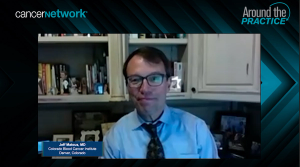
Published: March 25th 2022 | Updated:
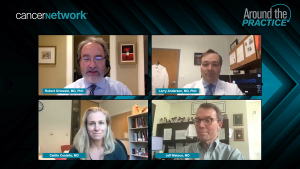
Published: September 8th 2021 | Updated:
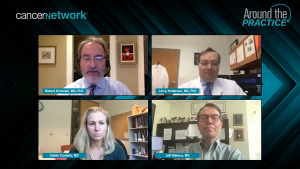
Published: September 17th 2021 | Updated:

Published: September 10th 2021 | Updated:

Published: September 24th 2021 | Updated:
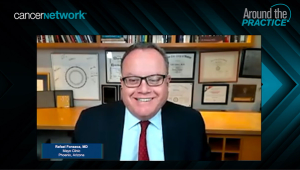
Published: March 25th 2022 | Updated: